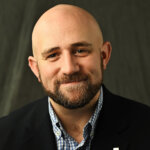If you’re driving around the University of Maryland with a busted taillight, you’ll probably still get pulled over, but you won’t get a ticket — instead, you’ll more likely get a chance to have it fixed.
Campus police will give drivers $250 vouchers to get broken bulbs replaced. They’ve partnered with the Minnesota-based nonprofit Microgrants for the Lights On program, started in response to the police shooting death of Philando Castile after he was stopped for a broken taillight.
It’s an effort to develop more positive police interactions.
“When police come to the car and after they do their checks, and they come back and say, ‘Hey, you had a blown head or taillight; here’s this voucher that will pay up to $250 to get the light fixed,” said Sherman Patterson, Lights On program director. “Instead of people just looking at each other in a negative way, it’s positive.”
The voucher is redeemable for 15 days at the University Gas on U.S. Route 1 in College Park.
The Lights On program is already well-established in Minnesota, with dozens of departments participating. The University of Maryland’s campus police is the first department in the D.C. region to participate.
“When Chief (David) Mitchell saw this from the University of Maryland, he called. We gave them a presentation, and he said, ‘Hey, we want to do this.’ This is right up their alley of helping police-community relations,’” Patterson told WTOP.
“We are proud to be the first police department in the state of Maryland to partner with Lights On. We look forward to the lasting impact this program will bring to the community and beyond,” Mitchell said in a news release.
But the program may soon be adopted by other departments in the state.
“We had a Zoom meeting with about 30 or so departments within the Maryland area, and I’ve already met with a few who’ve agreed that they want to come aboard,” said Patterson. “We definitely want to get into D.C.”
They already have departments participating in New York, Massachusetts, North Carolina and Wyoming.
“It’s helping people. It’s a potentially saving lives and it’s just a win-win for everyone,” he added.








